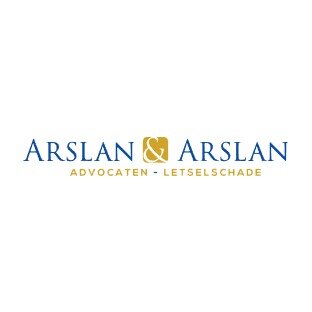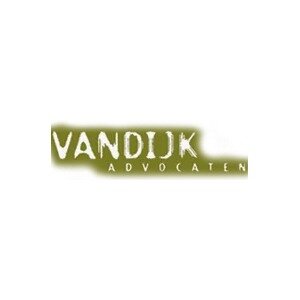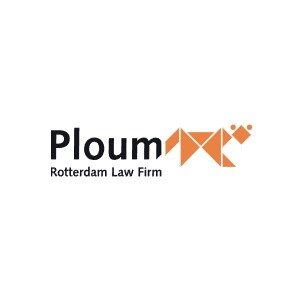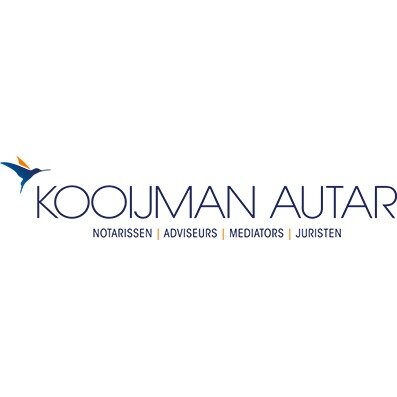Best Structured Finance Lawyers in Rotterdam
Share your needs with us, get contacted by law firms.
Free. Takes 2 min.
List of the best lawyers in Rotterdam, Netherlands
About Structured Finance Law in Rotterdam, Netherlands
Structured Finance refers to complex financial instruments offered to borrowers with unique or sophisticated financing needs, often involving asset-backed securities, securitization, syndicated loans, and derivatives. In Rotterdam, a major economic hub and home to one of Europe’s largest ports, Structured Finance is especially relevant for large-scale commercial projects, real estate deals, maritime transactions, and energy sector investments. Legal expertise in this field ensures that these complex transactions comply with industry regulations, optimize financial outcomes, and manage risk appropriately.
Why You May Need a Lawyer
People and organizations often seek legal advice in Structured Finance for many reasons. These include drafting and negotiating intricate loan or securitization agreements, ensuring compliance with national and EU regulations, navigating cross-border transactions, and mitigating tax risks. A lawyer can clarify contractual obligations, handle disputes, provide due diligence, and help manage risks associated with leveraging assets or pooling debt. Whether you represent a corporation seeking to raise capital or an investor considering asset-backed securities, consulting a lawyer helps ensure clarity and security in your financial endeavors.
Local Laws Overview
Rotterdam, and the Netherlands in general, is subject to a robust legal framework governing financial transactions, shaped by Dutch law and EU regulations. Key laws relevant to Structured Finance include the Dutch Civil Code, Financial Supervision Act (Wet op het financieel toezicht or Wft), and specific tax legislation. The Netherlands offers a favorable climate for securitization through the use of special purpose vehicles (SPVs), with distinct rules around bankruptcy remoteness and investor protection. Legal compliance, anti-money laundering measures, transparency, and tax structuring are all critical factors in Dutch Structured Finance transactions. Regulatory oversight is enforced by bodies such as De Nederlandsche Bank (DNB) and the Netherlands Authority for the Financial Markets (AFM).
Frequently Asked Questions
What is Structured Finance?
Structured Finance describes specialized financial instruments and strategies designed to facilitate large or complex funding needs, often involving securitization, syndicated loans, or debt repackaging.
Who uses Structured Finance in Rotterdam?
Corporations, property developers, shipping companies, financial institutions, and infrastructure investors operating in sectors like logistics, energy, or real estate commonly use Structured Finance to fund projects or manage risks.
What are common structures in Dutch Structured Finance?
Popular structures include asset-backed securities, mortgage-backed securities, collateralized loan obligations, and the use of special purpose vehicles to isolate financial risk.
How are Structured Finance transactions regulated?
Transactions are regulated by Dutch financial law, EU directives, and oversight from supervisory authorities like the AFM and DNB. Compliance with anti-money laundering and transparency rules is also essential.
How do I know if I need legal advice?
If you are considering a Structured Finance transaction, have compliance concerns, or wish to protect investments, legal advice can identify risks and ensure regulatory compliance.
What is a Special Purpose Vehicle (SPV) and why is it used?
An SPV is a separate legal entity created to carry certain assets or liabilities, allowing for risk isolation and enabling complex financial structuring without impacting the parent company’s balance sheet.
What are the main risks in Structured Finance?
Risks include credit risk, operational risk, regulatory changes, tax implications, counterparty risks, and reputational concerns. Legal guidance helps identify and manage these risks.
Can foreigners participate in Structured Finance in Rotterdam?
Yes, foreign individuals and entities can participate, though cross-border transactions may trigger additional legal and tax considerations requiring specialized advice.
How do Dutch tax laws impact Structured Finance?
The Netherlands has tax regimes that can be advantageous for certain structures, such as participation exemptions and rulings for SPVs. Professional legal and tax advice is recommended to optimize outcomes.
How long does a Structured Finance deal typically take?
The timeline varies widely depending on complexity, due diligence requirements, regulatory approvals, and negotiation processes. Deals can range from a few months to over a year.
Additional Resources
For those seeking more information, the following organizations may provide guidance or regulatory information:
- The Netherlands Authority for the Financial Markets (AFM)
- De Nederlandsche Bank (DNB)
- Dutch Ministry of Finance
- Dutch Association of Banks (NVB)
- Rotterdam Chamber of Commerce (Kamer van Koophandel Rotterdam)
- Netherlands Bar Association (Nederlandse Orde van Advocaten)
Next Steps
If you are considering or currently involved in a Structured Finance transaction in Rotterdam, it is advisable to:
- Gather all relevant documentation regarding your proposed transaction or investment.
- Write down your aims, risks, and any specific concerns.
- Contact a Rotterdam-based lawyer or law firm with expertise in Structured Finance and request an initial consultation.
- Discuss your goals, regulatory obligations, and available structure options in detail with your lawyer.
- Ensure transparent communication between all parties throughout the process.
Remember, early legal input can simplify complex transactions, avoid costly mistakes, and pave the way for successful, compliant deals.
Lawzana helps you find the best lawyers and law firms in Rotterdam through a curated and pre-screened list of qualified legal professionals. Our platform offers rankings and detailed profiles of attorneys and law firms, allowing you to compare based on practice areas, including Structured Finance, experience, and client feedback.
Each profile includes a description of the firm's areas of practice, client reviews, team members and partners, year of establishment, spoken languages, office locations, contact information, social media presence, and any published articles or resources. Most firms on our platform speak English and are experienced in both local and international legal matters.
Get a quote from top-rated law firms in Rotterdam, Netherlands — quickly, securely, and without unnecessary hassle.
Disclaimer:
The information provided on this page is for general informational purposes only and does not constitute legal advice. While we strive to ensure the accuracy and relevance of the content, legal information may change over time, and interpretations of the law can vary. You should always consult with a qualified legal professional for advice specific to your situation.
We disclaim all liability for actions taken or not taken based on the content of this page. If you believe any information is incorrect or outdated, please contact us, and we will review and update it where appropriate.












